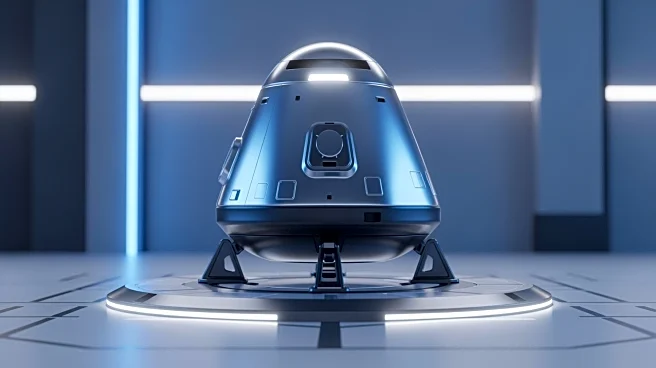What's Happening?
Boeing and NASA have decided to conduct a cargo-only trial run of the Starliner capsule before it carries astronauts to the International Space Station. This decision follows the capsule's previous mission,
which faced numerous technical issues, leading to a prolonged stay for astronauts Butch Wilmore and Suni Williams. The next cargo mission is scheduled for no earlier than April, pending further tests and certification. Boeing remains committed to the Starliner program, emphasizing safety as a priority. NASA has reduced the planned number of Starliner flights from six to four, with the remaining flights intended for crew exchanges before the space station's decommissioning in 2030.
Why It's Important?
The decision to conduct a cargo-only trial highlights the challenges Boeing faces in ensuring the Starliner's reliability and safety. This move is crucial for maintaining confidence in NASA's commercial crew program, which relies on private companies like Boeing and SpaceX to transport astronauts. The reduction in planned flights could impact Boeing's financial outlook and its role in future space missions. Successful resolution of the Starliner's issues is vital for NASA's long-term plans, including the continued operation of the International Space Station and future crewed missions.
What's Next?
NASA and Boeing will continue rigorous testing of the Starliner propulsion system in preparation for potential flights next year. The outcome of the cargo mission will determine the feasibility of subsequent crewed flights. Stakeholders, including NASA and Boeing, will closely monitor the trial's results to assess the Starliner's readiness for future missions. The broader space industry will watch these developments, as they could influence partnerships and contracts related to space exploration.











